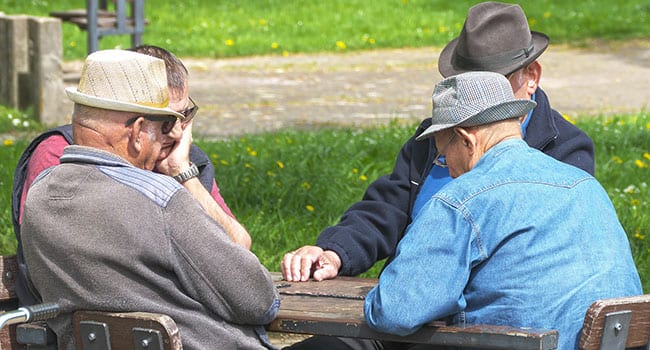 All of us born in the baby boomer era – the period signalling the end of the Second World War – are now in our 60s or early 70s, and sailing into the zone of no return.
All of us born in the baby boomer era – the period signalling the end of the Second World War – are now in our 60s or early 70s, and sailing into the zone of no return.
As much as we may wish to avoid the obvious, there’s increasing likelihood of the death of treasured old pals, neighbours and work associates.
This has all come home to me in a rush over the past six weeks, as four deaths have occurred in this precise grouping of individuals. Coming to grips with these multiple ‘passings’ has been emotionally difficult.
To begin with, I view death as the end of life and harbour no illusions about an afterlife. I’m my father’s son in this respect. At age 80, when asked, “What comes next?” he replied: “I am a man of science. Life ends. Make the most of it. Nothing follows.”
Dad was a professor of pediatrics and no stranger to death throughout his professional life. In fact, he lived with the death of children patients for his entire career. He made no effort to mask death in literary language or terms of avoidance. Death was death. In this respect I’m the same – my father’s scientific son.
Instead of seeking religious haven or faith-based coping, I’m dependent on my emotional maturity (which some of my close-in advisers say is in need of work) for balance and means of acceptance.
Fair enough, I think. It’s difficult to prepare for tough life events that aren’t everyday occurrences, that mount unexpectedly and show promise of increasing frequency.
Like many things in life, direct experience is a guide to coping. Skills in coping with death develop because of the experience of death.
So where does this leave me?
To gather some insights on next steps, perhaps because of my anthropological training, I’ve consulted my elders. I’m most fortunate to have a 97-year-old mother, still equipped with superb mental faculties, and I’ve sought her counsel.
She advises that she and I are survivors, and have a duty to show strength. She stresses the importance of making younger friends. She counsels getting on with life. Intellectual conversations are seen to be important, along with the direct experience of nature and beauty.
Her personal examples of these actions are of signal importance: she tries to walk a mile or so each day, and she is giving her great-grandchildren art classes. She begins with teaching them, “Colouring within the lines,” to introduce the principles of control, form and colour.
Another elder I turn to for counsel in times of stress is paradoxically my now-deceased workmate and friend, Dr. Joan Ryan.
One of Canada’s foremost applied anthropologists in the 1980s and 1990s, Joan started life in the Cabbagetown neighbourhood of Montreal, and developed an academic career culminating with becoming the University of Calgary’s first female department head. She and I pioneered participatory action research projects with the Arctic Institute across the Canadian North, and often counselled each other in times of community trauma we witnessed first-hand.
Above all, Joan was a pragmatist. Her philosophy of life was fact-based, realistic and decisive.
I can still hear her: “Michael, you deal with things. If you can help the dying, you do so. Sometimes being present is all you can do. Remember that assisting the dying in their final days is the duty of a friend. In fact, I want you to help me this way when my time comes. I would like you to be the co-holder of my living will and my executor.”
I agreed.
When Joan’s time to die arrived, she and I decided to move her to the Agape Hospice in Calgary. Seven days later, she died. I was present each day and marvelled at her determination to say goodbye to friends, to present a reasoned view of her situation and to accept what was happening. She had no illusions, presented no fear and died according to her plan.
Today I’m channeling her example to cope with a new phenomenon – multiple deaths of friends and workmates. I’ve been present, I’ve endeavoured to help and I’ve been reasoned in my approach.
All the same, it has been a time of great sadness and I’m once again acutely aware of the finite nature of life.
Mike Robinson has been CEO of three Canadian NGOs: the Arctic Institute of North America, the Glenbow Museum and the Bill Reid Gallery. Mike has chaired the national boards of Friends of the Earth, the David Suzuki Foundation, and the Canadian Parks and Wilderness Society. In 2004, he became a Member of the Order of Canada.
The views, opinions and positions expressed by columnists and contributors are the author’s alone. They do not inherently or expressly reflect the views, opinions and/or positions of our publication.


